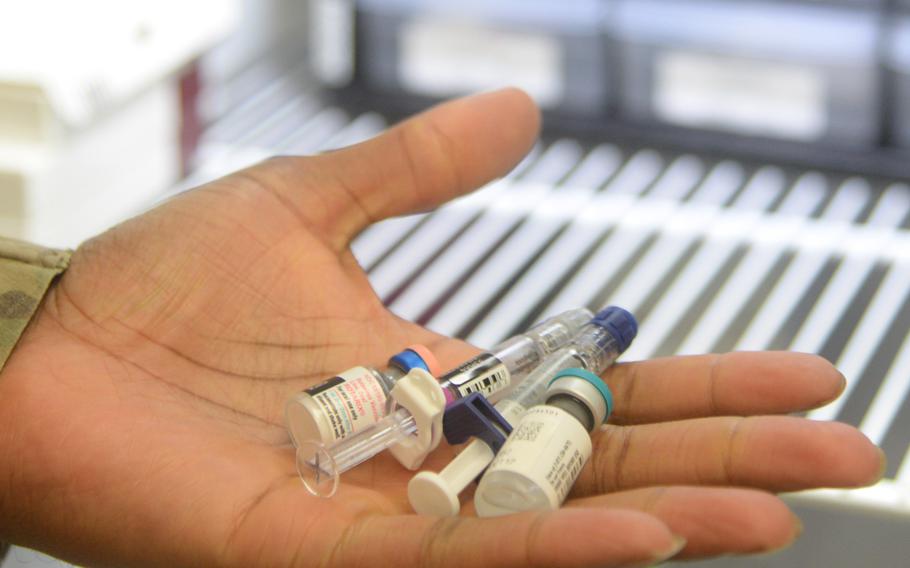Active-duty military and veterans are twice as likely as civilians to develop cancers associated with human papillomavirus, or HPV. Now, research shows they are also half as likely to be vaccinated as those civilians — a disparity experts say will lead to preventable cancer deaths.
To estimate HPV vaccination among veterans, researchers analyzed Veterans Health Administration data on more than 128,000 veterans ages 18 to 26 who had at least one primary care visit between 2018 and 2020, then compared it with federal data on civilians.
Just 30.2% of female and 18.7% of male veterans had received the vaccine, compared with 62.4% of civilian women and 37% of civilian men. This year, another study showed that among active-duty service members, 37.8% of women and 3.9% of men had received at least one dose of the three-dose vaccine series.
Vaccination was least common among White male and Native American female veterans, and most common among Asian American and Pacific Islander veterans of both sexes. Veterans in Wyoming, Oklahoma and Texas were least likely to be vaccinated against HPV.
Although veterans are twice as likely to develop HPV infections that can lead to cancer, the researchers write, the military doesn’t require vaccination to serve.
That’s a missed opportunity, José P. Zevallos, chair of the otolaryngology department at the University of Pittsburgh Medical Center and the study’s senior author, suggests in a news release.
“Our findings should serve as a call to action to the Department of Defense and the Veterans Health Administration to advocate that their service members get vaccinated,” Zevallos said.
The Centers for Disease Control and Prevention’s Advisory Committee on Immunization Practices recommends that children and adults through age 26 get the HPV vaccine. The vaccine reduces the risk of developing the sexually transmitted infection — the most common of its kind — that is linked to anal, cervical, vaginal and penile cancers.
Although the ideal time to receive the vaccination is before becoming sexually active, adults can “catch up” on vaccination. The researchers recommend boosting catchup campaigns among veterans to help prevent the disease and save on treatment costs.

Medical personnel show commonly administered vaccines at Malmstrom Air Force Base, Mont. (Tristan Truesde/U.S. Air Force)